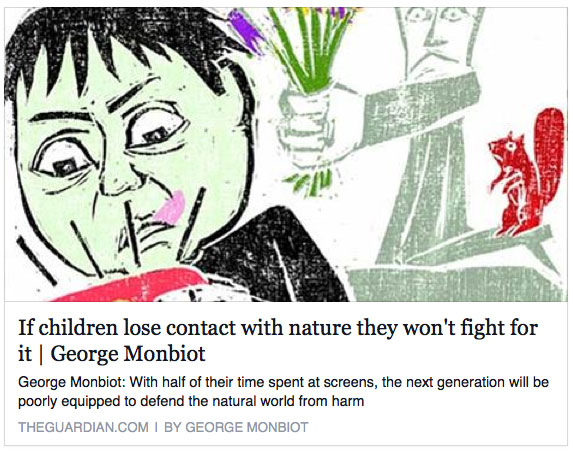One woman’s opinion, by Amy Lenzo
On reading an article by George Monbiot in the UK Guardian called If Children Lose Contact With Nature They Won’t Fight For It … I agree wholeheartedly with Monbiot’s title, but my hackles rise at the (to me) lazy & inaccurate argument that follows, “blaming” the entire problem at the door of youth’s on-screen engagement.
The truth is that while large-scale social conditions have indeed changed our children’s freedoms and access to the natural world (there’s a lot more happening here than the rise of the internet, folks), I believe that those little screens also hold some part of the way back for many of us (and our children).
 I grew up as an introvert in the Arizona desert, where nature was a bit prickly to say the least, and my own passion for the natural world was born in books. Today’s “books” have multi-media to draw children in to the mystery and magic of the natural world, and are even more effective.
I grew up as an introvert in the Arizona desert, where nature was a bit prickly to say the least, and my own passion for the natural world was born in books. Today’s “books” have multi-media to draw children in to the mystery and magic of the natural world, and are even more effective.
Of course we want to encourage children to get out on the land and have direct engagement with the natural world.
Of course a personal relationship with nature is a hugely powerful motivational source for conservation and environmental activism (we protect what we know and love), and a source of balance and wholeness for all of us.
We are all of the land, and belong to it, whether we know it or not. From my perspective, it’s far more effective to convey this message creatively in the many ways we now have to connect and communicate with each other – and imbue our own online engagement with nature-connection (e.g. don’t disconnect from our bodies when we’re online, remember we are talking with actual human beings with their feet on the ground within a specific environment, use sense-based language and photography to stay connected to the natural world, etc.) – than it is to bemoan reality.
